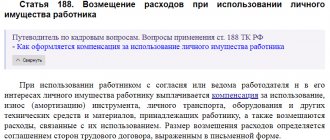ST 159.6 of the Criminal Code of the Russian Federation.
1. Fraud in the field of computer information, that is, theft of someone else’s property or acquisition of rights to someone else’s property by entering, deleting, blocking, modifying computer information or otherwise interfering with the functioning of means of storing, processing or transmitting computer information or information and telecommunication networks, -
shall be punishable by a fine in the amount of up to one hundred twenty thousand rubles, or in the amount of the wages or other income of the convicted person for a period of up to one year, or by compulsory labor for a term of up to three hundred and sixty hours, or by corrective labor for a term of up to one year, or by restriction of liberty for a term of up to two years, or forced labor for up to two years, or arrest for up to four months.
2. The same act, committed by a group of persons by prior conspiracy, as well as causing significant damage to a citizen, -
shall be punishable by a fine in the amount of up to three hundred thousand rubles, or in the amount of the wages or other income of the convicted person for a period of up to two years, or by compulsory labor for a term of up to four hundred eighty hours, or by corrective labor for a term of up to two years, or by forced labor for a term of up to five years. with restriction of freedom for a term of up to one year or without it, or imprisonment for a term of up to five years with restriction of freedom for a term of up to one year or without it.
3. Acts provided for in parts one or two of this article, committed:
a) by a person using his official position;
b) on a large scale;
c) from a bank account, as well as in relation to electronic funds, -
shall be punishable by a fine in the amount of one hundred thousand to five hundred thousand rubles, or in the amount of the wages or other income of the convicted person for a period of one to three years, or by forced labor for a term of up to five years with or without restriction of freedom for a term of up to two years, or imprisonment for a term of up to six years with a fine in the amount of up to eighty thousand rubles or in the amount of the wages or other income of the convicted person for a period of up to six months or without it and with restriction of freedom for a term of up to one and a half years or without it.
4. Acts provided for in parts one, two or three of this article, committed by an organized group or on an especially large scale, -
shall be punishable by imprisonment for a term of up to ten years with or without a fine in the amount of up to one million rubles or in the amount of the wages or other income of the convicted person for a period of up to three years and with or without restriction of freedom for a term of up to two years.
Commentary to Art. 159.6 Criminal Code
1. The corpus delicti is characterized by a special method of committing a crime - deception by entering, deleting, blocking, modifying computer information or otherwise interfering with the functioning of means of storing, processing or transmitting computer information or information and telecommunication networks.
2. The entry of computer information should be understood as the introduction (installation) into the electronic memory of a computer, other devices capable of performing the functions of receiving, processing, storing and issuing information in electronic form, including mobile phones, smartphones, on-board computers of vehicles, control cash registers, ATMs, etc., data necessary for the execution of a computer program, or the programs themselves. The deletion (destruction) of information should be understood as bringing information or part of it into an unusable state, which prevents its retrieval from the corresponding section of computer memory, other device, removable media or Internet site, regardless of the possibility of restoring this information. Renaming the file where it is contained, as well as automatically replacing the updated file, does not constitute destruction of information. Blocking information is a temporary or permanent restriction or actual blocking of access to it, characterized by the impossibility of using information for its intended purpose in full or in the required mode, but not associated with its (deletion) destruction. When modified, the content of information changes, making it difficult to perceive it in its original form. A change in information that does not lead to a distortion of its semantic content, for example, a change in font, style, or text size, does not constitute a modification.
3. In contrast to the crimes provided for in Art. 170.1 and 185.2 of the Criminal Code, the commented article assumes, firstly, responsibility for a wider range of fraudulent transactions (not only in the securities market) and, secondly, for successful fraud. Attempted theft of securities in this manner is qualified under Art. 170.1 and 185.2 of the Criminal Code.
4. If the fraud provided for in Art. 159.1 - 159.5 of the Criminal Code, was committed as specified in Art. 159.6 of the Criminal Code, qualification is carried out according to Art. 159.1 - 159.5 CC.
5. If fraud in the field of computer information was associated with the commission of acts, liability for which is established by Art. 272 and 273 of the Criminal Code, the act is qualified as a set of crimes.
Second commentary to Art. 159.6 of the Criminal Code of the Russian Federation
1. The subject of this type of fraud is property or the right to property.
2. The objective side of this crime consists of actions related to the seizure of someone else’s property or the acquisition of the right to it through deception or abuse of trust, committed by: a) entering, deleting, blocking, modifying computer information or b) other interference in the functioning of storage facilities, processing or transmission of computer information or information and telecommunication networks.
3. In accordance with the Federal Law of the Russian Federation dated July 27, 2006 No. 149-FZ “On information, information technologies and information protection” (as amended by the Federal Law dated April 5, 2013 No. 50-FZ), computer information is information on a computer media, in an electronic computer (computer), computer system or their network. An information and telecommunications network is a technological system designed to transmit information over communication lines, accessed using computer technology.
4. Entering computer information means placing information in computer devices, a computer system or their network for subsequent processing and (or) storage.
Deleting computer information means actions that exclude the possibility of restoring the contents of computer information in computer devices, a computer system or their network.
Blocking computer information is actions that lead to restriction or blocking of access to computer information in a computer, computer system or their network.
Modification of computer information means a change in the information contained in a computer, computer system or their network, presented in the form of electrical signals.
Interference in the functioning of means of storing, processing or transmitting computer information or information and telecommunication networks must be understood as unlawful actions that violate the process of processing, storage, use, transmission and other handling of computer information, established by the Federal Law “On Information, Information Technologies and Protection” information" and other regulatory legal acts.
5. The crime forms the corpus delicti of the analyzed crime, provided that as a result of the actions listed above, the offender takes possession of someone else’s property or acquires the right to it. From this moment on, this type of fraud forms a completed crime.
6. The subjective side of the crime is characterized by direct intent and selfish motive.
7. The subject of the crime is a person who has reached the age of 16 years.
8. Qualified types of fraud in the field of computer information (Part 2) are the same acts committed by a group of persons by prior conspiracy, as well as causing significant damage to a citizen (see Note 2 to Article 158 of the Criminal Code).
9. Particularly qualified types of fraud in the field of computer information (Part 3 of Article 159.6 of the Criminal Code) constitute fraud committed by a person using his official position, as well as on a large scale (over 1.5 million rubles).
10. In part 4 art. 159.6 of the Criminal Code establishes liability for acts provided for in parts 1, 2 and 3 of this article, committed by an organized group or on a particularly large scale (over 6 million rubles).
Judicial practice under Part 4 of Art. 159 Criminal Code of the Russian Federation
Criminal Code of the Russian Federation
Article 159. Fraud (as amended by Federal Law No. 162-FZ of December 8, 2003)
1. Fraud, that is, the theft of someone else’s property or the acquisition of rights to someone else’s property by deception or abuse of trust, -
shall be punishable by a fine in the amount of up to one hundred twenty thousand rubles, or in the amount of the wages or other income of the convicted person for a period of up to one year, or by compulsory labor for a term of up to three hundred and sixty hours, or by corrective labor for a term of up to one year, or by restriction of liberty for a term of up to two years, or forced labor for a term of up to two years, or arrest for a term of up to four months, or imprisonment for a term of up to two years.
(as amended by Federal Law dated December 7, 2011 N 420-FZ)
2. Fraud committed by a group of persons by prior conspiracy, as well as causing significant damage to a citizen, -
shall be punishable by a fine in the amount of up to three hundred thousand rubles, or in the amount of the wages or other income of the convicted person for a period of up to two years, or by compulsory labor for a term of up to four hundred eighty hours, or by corrective labor for a term of up to two years, or by forced labor for a term of up to five years. with restriction of freedom for a term of up to one year or without it, or imprisonment for a term of up to five years with restriction of freedom for a term of up to one year or without it.
(as amended by Federal Law dated December 7, 2011 N 420-FZ)
3. Fraud committed by a person using his official position, as well as on a large scale, -
shall be punishable by a fine in the amount of one hundred thousand to five hundred thousand rubles, or in the amount of the wages or other income of the convicted person for a period of one to three years, or by forced labor for a term of up to five years with or without restriction of freedom for a term of up to two years, or imprisonment for a term of up to six years with a fine in the amount of up to eighty thousand rubles or in the amount of the wages or other income of the convicted person for a period of up to six months or without it and with restriction of freedom for a term of up to one and a half years or without it.
(as amended by Federal Laws dated December 27, 2009 N 377-FZ, dated March 7, 2011 N 26-FZ, dated December 7, 2011 N 420-FZ, dated November 29, 2012 N 207-FZ)
4. Fraud committed by an organized group or on an especially large scale or resulting in the deprivation of a citizen’s right to residential premises, -
(as amended by Federal Law dated November 29, 2012 N 207-FZ)
shall be punishable by imprisonment for a term of up to ten years with or without a fine in the amount of up to one million rubles or in the amount of the wages or other income of the convicted person for a period of up to three years and with or without restriction of freedom for a term of up to two years.
(as amended by Federal Laws dated December 27, 2009 N 377-FZ, dated March 7, 2011 N 26-FZ)
5. Fraud associated with deliberate failure to fulfill contractual obligations in the field of business activity, if this act entailed causing significant damage -
shall be punishable by a fine in the amount of up to three hundred thousand rubles, or in the amount of the wages or other income of the convicted person for a period of up to two years, or by compulsory labor for a term of up to four hundred eighty hours, or by corrective labor for a term of up to two years, or by forced labor for a term of up to five years. with restriction of freedom for a term of up to one year or without it, or imprisonment for a term of up to five years with restriction of freedom for a term of up to one year or without it.
(Part 5 introduced by Federal Law dated July 3, 2016 N 323-FZ)
6. The act provided for in part five of this article, committed on a large scale, -
shall be punishable by a fine in the amount of one hundred thousand to five hundred thousand rubles, or in the amount of the wages or other income of the convicted person for a period of one to three years, or by forced labor for a term of up to five years with or without restriction of freedom for a term of up to two years, or imprisonment for a term of up to six years with a fine in the amount of up to eighty thousand rubles or in the amount of the wages or other income of the convicted person for a period of up to six months or without it and with restriction of freedom for a term of up to one and a half years or without it.
(Part 6 introduced by Federal Law dated July 3, 2016 N 323-FZ)
7. An act provided for in part five of this article, committed on an especially large scale, -
shall be punishable by imprisonment for a term of up to ten years with or without a fine in the amount of up to one million rubles or in the amount of the wages or other income of the convicted person for a period of up to three years and with or without restriction of freedom for a term of up to two years.
(Part 7 introduced by Federal Law dated July 3, 2016 N 323-FZ)
Notes. 1. Significant damage in part five of this article is considered to be damage in an amount of at least ten thousand rubles.
2. Large size in part six of this article is the value of property exceeding three million rubles.
3. In part seven of this article, the value of property exceeding twelve million rubles is recognized as particularly large in size.
4. Parts five to seven of this article apply to cases of deliberate failure to fulfill contractual obligations in the field of business activity, when the parties to the agreement are individual entrepreneurs and (or) commercial organizations.
(notes introduced by Federal Law dated July 3, 2016 N 323-FZ)
Third commentary to Article 159.6 of the Criminal Code of the Russian Federation
1. Currently, the so-called computer fraud is very common, when the perpetrator uses unlawful access to legally protected computer information related to the ownership of property or rights to property to steal. This was repeatedly the subject of investigation and interpretation by the Plenum of the Supreme Court of the Russian Federation, which served as the basis for the creation of a special article on liability for fraud in the field of computer information. Blanket disposition presupposes knowledge of the following regulations: Federal Law dated July 27, 2006 N 149-FZ “On information, information technologies and information protection” (as amended on July 28, 2012); the fourth part of the Civil Code of the Russian Federation; Federal Law of July 29, 2004 N 98-FZ “On Trade Secrets” (as amended on July 11, 2011); Federal Law of December 2, 1990 N 395-1 “On Banks and Banking Activities” (as amended on December 3, 2012), etc.
2. The legislator included the subject of this crime as someone else’s property and the right to someone else’s property. In this case, the disposition of the general article on liability for fraud is repeated, although this approach has been repeatedly criticized. The right to property in the full sense of the word is not the subject of a crime, but only presupposes the emergence of a subjective right to own, use and dispose of property. Moreover, the moment of the end of the crime in this case is associated only with state registration, which does not correspond to the generally accepted moment of the end of the theft. It would be better to provide a special rule with the acquisition of rights to property through deception or abuse of trust. An additional subject of the crime is computer information, with the help of which the perpetrator carries out fraudulent actions and takes possession of property or acquires the right to property. Therefore, illegal access to protected computer information and other illegal actions in this area require qualification in conjunction with Art. Art. 272 or 273 of the Criminal Code.
3. From the point of view of the objective side, the act is carried out through various actions of both a technical and intellectual nature, namely by entering, deleting, blocking, modifying computer information or otherwise interfering with the functioning of means of storing, processing or transmitting computer information or information and telecommunication networks . Moreover, if consequences in the form of material damage to the owner or other holder of property do not occur for reasons beyond the will of the perpetrator, his actions should be qualified as an attempt to commit this crime and in combination with actions for which liability is provided for in Art. Art. 272 or 273 of the Criminal Code. In case of disclosure of confidential information, liability may also arise under other articles of the Criminal Code.
4. All other elements and signs of this type of special fraud correspond to the general composition of fraud (see commentary to Article 159 of the Criminal Code).
5. Qualifying and specially qualifying characteristics are similar to those specified in Art. 159.3 CC. ‹Article 159.5. Fraud in the field of insuranceUp Article 160. Misappropriation or embezzlement ›
Article 159.6. Computer Fraud
Cassation ruling of the Judicial Collegium for Criminal Cases of the Supreme Court of the Russian Federation dated June 13, 2019 N 20-UD19-9 Federal Law dated November 29, 2012 N 207-FZ The Criminal Code of the Russian Federation was supplemented with Articles 159.1 - 159.6 of the Criminal Code of the Russian Federation, delimiting the elements of fraud committed in various sectors of the economy, including entrepreneurship. At the same time, according to Part 1 of Art. 159.4 of the Criminal Code of the Russian Federation, fraud in the field of entrepreneurial activity is fraud associated with the deliberate failure to fulfill contractual obligations in the field of entrepreneurial activity.
Determination of the Constitutional Court of the Russian Federation dated April 20, 2017 N 767-O
The special rule provided for in part one.1 of Article 108 of the Code of Criminal Procedure of the Russian Federation, according to which detention as a preventive measure cannot be applied to a suspect or accused of committing crimes under Articles 159 - 159.3, 159.5, 159.6, 160 and 165 of the Criminal Code of the Russian Federation Federation, if these crimes were committed in the field of business activity, as well as Articles 171 - 174, 174.1, 176 - 178, 180 - 183, 185 - 185.4 and 190 - 199.2 of the same Code, in the absence of the circumstances specified in paragraphs 1 - 4 parts The first of this article of the criminal procedure law is an additional guarantee of the constitutional right to freedom and personal integrity (rulings of the Constitutional Court of the Russian Federation of February 24, 2011 N 250-О-О, of November 20, 2014 N 2637-О, etc.).
Determination of the Constitutional Court of the Russian Federation dated June 27, 2017 N 1395-O
Enshrined in part one.1 of Article 108 of the Code of Criminal Procedure of the Russian Federation, there is a special rule according to which detention as a preventive measure cannot be applied to a suspect or accused of committing crimes under Articles 159 - 159.3, 159.5, 159.6, 160 and 165 of the Criminal Code of the Russian Federation Federation, if these crimes were committed in the field of business activity, as well as Articles 171 - 174, 174.1, 176 - 178, 180 - 183, 185 - 185.4 and 190 - 199.2 of the same Code, in the absence of the circumstances specified in paragraphs 1 - 4 parts The first of this article of the Criminal Procedure Law is an additional guarantee of the constitutional right to freedom and personal integrity (Definitions of the Constitutional Court of the Russian Federation of February 24, 2011 N 250-О-О, of November 20, 2014 N 2637-О, etc.).
Resolution of the Plenum of the Supreme Court of the Russian Federation dated October 3, 2017 N 34
Taking into account the difficulties that arise in law enforcement practice when choosing a preventive measure in the form of detention and deciding whether the crime of which a person is suspected or accused belongs to the sphere of entrepreneurial activity, in part one.1 of Article 108 of the Code of Criminal Procedure of the Russian Federation it is proposed to clarify , to whom the guarantees established by this norm specifically apply in the event of committing crimes provided for in parts one through four of Article 159, articles 159.1 - 159.3, 159.5, 159.6, 160, 165 of the Criminal Code of the Russian Federation.
Resolution of the Presidium of the Supreme Court of the Russian Federation dated June 20, 2018 N 57P18
Federal Law No. 207-FZ of November 29, 2012 supplemented the Criminal Code of the Russian Federation with Articles 159.1 - 159.6 of the Criminal Code of the Russian Federation, delimiting the elements of fraud committed in various spheres of the economy, including entrepreneurship. At the same time, in accordance with Art. 159.4 of the Criminal Code of the Russian Federation, fraud in the field of business activity is recognized as fraud associated with the deliberate failure to fulfill contractual obligations in the field of business activity.
Determination of the Constitutional Court of the Russian Federation dated June 30, 2020 N 1424-O
According to the applicant, the contested norm allows preliminary investigation bodies and courts to bypass the legislative prohibition on the use of detention as a preventive measure against a suspect or accused of committing crimes provided for in parts one to four of Article 159, Articles 159.1 - 159.3, 159.5, 159.6, 160, 165 and 201 of the Criminal Code of the Russian Federation, despite the fact that these crimes were committed in real connection with the implementation of business activities, citing the fact that the charged act contains signs of a crime, and not legitimate business activity, and also that the crime caused harm interests of a state or municipal unitary enterprise, state corporation, state company, commercial organization with participation in the authorized (share) capital (share fund) of the state or municipal entity, or if the subject of the crime was state or municipal property.
Determination of the Constitutional Court of the Russian Federation dated July 23, 2020 N 1863-O
According to the applicant, part one.1 of Article 108 of the Code of Criminal Procedure of the Russian Federation allows preliminary investigation authorities and courts to bypass the legislative ban on the use of detention as a preventive measure against a suspect or accused of crimes provided for in parts one through four of Article 159, articles 159.1 - 159.3, 159.5, 159.6, 160, 165 and 201 of the Criminal Code of the Russian Federation and committed in real connection with the implementation of business activities, referring to the fact that the imputed act contains signs of a crime, and not legitimate business activity, and that the crime caused harm interests of a state or municipal unitary enterprise, state corporation, state company, commercial organization with participation in the authorized (share) capital (share fund) of the state or municipal entity, or the subject of the crime was state or municipal property.
Determination of the Constitutional Court of the Russian Federation dated March 27, 2018 N 834-O
These general provisions also apply to fraud in the field of lending, since in Resolution No. 32-P of December 11, 2014, the Constitutional Court of the Russian Federation indicated that Federal Law No. 207-FZ of November 29, 2012 introduced special types of fraud (Articles 159.1 - 159.3 , 159.5 and 159.6 of the Criminal Code of the Russian Federation).
Determination of the Constitutional Court of the Russian Federation dated July 17, 2018 N 2010-O
Enshrined in part one.1 of Article 108 of the Code of Criminal Procedure of the Russian Federation, there is a special rule according to which detention as a preventive measure cannot be applied to a suspect or accused of committing crimes under Articles 159 - 159.3, 159.5, 159.6, 160 and 165 of the Criminal Code of the Russian Federation Federation, if these crimes were committed in the field of business activity, as well as Articles 171 - 174, 174.1, 176 - 178, 180 - 183, 185 - 185.4 and 190 - 199.4 of the same Code, in the absence of the circumstances specified in paragraphs 1 - 4 parts The first of this article of the criminal procedure law is an additional guarantee of the constitutional right to freedom and personal integrity (rulings of the Constitutional Court of the Russian Federation of February 24, 2011 N 250-О-О, of November 20, 2014 N 2637-О, etc.).
Determination of the Constitutional Court of the Russian Federation dated February 26, 2021 N 328-O
The special rule enshrined in part one.1 of Article 108 of the Code of Criminal Procedure of the Russian Federation, according to which detention as a preventive measure in the absence of the circumstances specified in paragraphs 1 - 4 of part one of the same article, cannot be applied to a suspect or accused of committing crimes provided for in parts one to four of Article 159, Articles 159.1 - 159.3, 159.5, 159.6, 160, 165 and 201 of the Criminal Code of the Russian Federation, if these crimes were committed by an individual entrepreneur in connection with his business activities and (or) management of property owned by him and used for the purposes of entrepreneurial activity, or if these crimes were committed by a member of the management body of a commercial organization in connection with the exercise of powers by him to manage the organization or in connection with the implementation by a commercial organization of entrepreneurial or other economic activities, as well as parts five to seven of Article 159, Articles 171, 171.1 171.3 - 172.3, 173.1 - 174.1, 176 - 178, 180, 181, 183, 185 - 185.4 and 190 - 199.4 of the Criminal Code of the Russian Federation, is an additional guarantee of the constitutional right to freedom and personal integrity (determination of the Constitutional Court of the Russian Federation of February 24, 2011, 2011 year N 250-О-О, dated November 20, 2014 N 2637-О, etc.).
Appeal ruling of the Judicial Collegium for Criminal Cases of the Supreme Court of the Russian Federation dated June 25, 2019 N 5-APU19-55
Responsibility for these acts is also provided for by Russian criminal legislation and corresponds to Part 3 of Art. 272, part 4 art. 159.6 of the Criminal Code of the Russian Federation. The statute of limitations for attracting Bogdan Z.P. criminal liability has not expired. Bogdan Z.P. is a citizen of the Republic of Belarus, which is confirmed by relevant documents.







